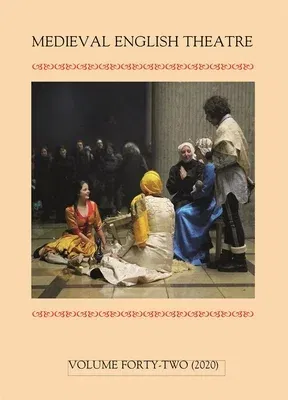Essays on the performance of drama from the Middle Ages, ranging from
the well-known cycles of York to matter from Iran.
Medieval English Theatre is the premier journal in early theatre
studies. Its name belies its wide range of interest: it publishes
articles on theatre and pageantry from across the British Isles up to
the opening of the London playhouses and the suppression of the civic
mystery cycles, and also includes contributions on European and Latin
drama, together with analyses of modern survivals or equivalents, and of
research productions of medieval plays.
Theatrical performance is central to the groups and communities
discussed in this volume, and to their particular and local expressions
of faith. The articles presented explore the drama of a variety of
different communities from religious orders and houses, through local,
medieval and post-medieval lay communities, to contemporary worshippers.
Contributors examine complex relationships between theatrical
performance and faith, understanding religious theatre as a mode of
worship and a method of exploring belief, as well as a site for the
study of synchronous and asynchronous connections and fractures within
communities. Particular topics addressed include the fragments of
play-scripts surviving from the monastery at Mont-St-Michel; the Barking
Abbey Easter celebrations; and how the sixteenth-century community which
owned the surviving copy of the Towneley plays might have understood
them in relation to their own faith. The volume is completed with an
exploration of traditional Iranian religious theatre from an
ethnographic perspective, in a bid to uncover and understand its very
particular effects on the contemporary communities who perform and
attend it in the twenty-first century.
ELISABETH DUTTON and OLIVA ROBINSON run the Medieval Convent Drama
project, based at the University of Fribourg and funded by the Swiss
National Science Foundation, which provides the impetus for this special
issue of Medieval English Theatre. Contributors: Aurélie Blanc, Eleanor
Lucy Deacon, George Gandy, Camille Marshall, James Stokes

